The air was dry. The grass had turned a dull shade of brown. The few trees in town had long since abandoned attempts to impress with colorful displays. They let go of their pallid orange and yellow leaves, surrendering them to the atmosphere, not leaving enough to amount to even the smallest piles for kids and dogs to pounce upon. A force was at work that made it futile to try to corral leaves. It was The Wind. It had come to blow the leaves down the streets of town, across school playgrounds, parking lots, the town square. The Wind was determined to sweep away all evidence that leaves had ever existed, leaves that when they were green and supple and optimistic had clung to tree branches and withstood the Spring and Summer gusts—the weaker relatives of The Autumn Wind.
The Cold joined The Wind, and together they took pleasure in sending icy bolts through buttoned-up coats to hunched-up shoulders underneath. If The Wind was an irresistible force, the rock house that belonged to Ike and Jerry Dale Gibson was an immovable object. It stood like a boulder, buffeted on all sides, providing refuge to any inhabitant. The Wind and the rock house duked it out.
It was early afternoon, late November. All at once, The Wind gathered a mass of dead leaves into a vortex, tightening and compressing the leaves into a tall, menacing tower. Then, just as quickly, The Wind went on its way, leaving the vortex with no support. The leaves fell with a surprising weight. The vortex turned puny and ashamed. It rose up into the sky and dissipated.
In its place, The Wind delivered a Lincoln Continental to the curb in front of the rock house. A woman nonchalantly pushed open the heavy car door and got out. She gave no notice to either The Wind or The Cold. She was young and fierce. Long, black hair blew sideways and hid her face as she strode up the walk. A lazy lizard sunning himself on the porch step abandoned his tail and slid under the protection of a fat juniper shrub. The shrub, in equal alarm, dropped some of its sharp needles, and they landed next to the tail that had been offered up by the lizard. The woman gave the door an obligatory knock and, without waiting, opened it and let out a whoop.
Her hair fell away from her face. She saw then that the big front room was empty and called out, “Anybody home? Uncle Ike? Y’all home?” She didn’t wait for an answer. She moved through the front room and pushed through a door that swung wildly aside, letting her into a warm but empty kitchen.
She felt the coffeepot, dumped out cold grounds and put on a strong brew. She was fueled by muscle memory. She sat at the table with the mug of coffee and a chunk of brown sugar poundcake she found under a green-and-red metal cake cover that had been protecting brown sugar poundcakes faithfully for years. With the first bite, she turned loose a sigh. The sigh was almost a moan, and it became almost a wail as she threw her head back. Her black, black hair touched the floor and became a river, and the dark water broke open and flooded her with gratitude for this place. Cat Gibson began to choke and cough and sob. Pieces of brown sugar poundcake spewed from her mouth.
Carl Johnson woke to the sound of her sobbing. He had been asleep—dead to the world asleep, dead to Cat’s war-cry asleep—buried under pillows on the leather sofa in the living room. It was the otherworldly sound of her sobs that reached him, brought him to his feet. “Who’s there?” he asked. A question he didn’t need to ask. He pushed open the kitchen door and confirmed what he knew. The sight of her jarred loose his own river. “Cat.” He spoke her name like some people speak a prayer, like some speak a curse.
Her jaw tightened. Her closed eyes did not keep her from seeing who it was that spoke her name. Cat. She wasn’t the same Cat. But she heard the voice, and it resurrected the girl.
She drew a breath, full of pretense and bravado, and opened her eyes. Still staring up at the ceiling, she said, “Well, I’ll just be goddamned. Carl Johnson, you ol’ horse thief, is that you?” She turned toward the voice. He was thinner by twenty pounds than the last time she’d seen him, and he was in a wheelchair.
The front door blew open, and a child’s voice called out. “Daddy?” Carl let his eyes go from her to the present. He answered, “In the kitchen, son.” The six-year-old boy walked through the kitchen door and was jolted nearly off his feet at the sight of her. The sight of Cat. “Jace,” Carl said. “This is Cat Gibson. She’s Ike’s niece from Oklahoma. Cat, this is my son, James Carlton Johnson, Jr. We call him Jace.”
Jace was embraced by the Gibsons just like his father Carl, who had been part of the Gibson family since he and Priscilla were in kindergarten. Priscilla brought home stray dogs, collected rocks, captured horny toads and always seemed to make friends with kids who needed some attention. Carl Johnson had gotten lost in his single mother’s struggle to raise him. The Gibsons found him and filled in the gaps. Ike knew about growing up without a father. As close as Priscilla was with her father, she wasn’t jealous of the time Ike spent with Carl, taking him on fishing and camping trips, teaching him to throw a football, catch a baseball.
But Priscilla was jealous of the time Carl spent with Cat. Priscilla and Carl both idolized her. Cat was older than the two of them by almost eight years. A teenager. When Cat was around, Priscilla and Carl figured what she didn’t know wasn’t worth knowing.
Ike’s sister married comfortably. His brother John married often. Cat was John’s daughter from his first marriage. The only reliable family structure Cat had ever known was the times she spent with her Uncle Ike, Aunt Jerry Dale and younger cousin Priscilla—the long summer vacations, Christmases and the many times the Gibson home had been a refuge to her when her home was in turmoil.
Ike and his brother John had married White women. Their daughters Cat and Priscilla were made from the same recipe, but the results were different. Priscilla envied her cousin’s looks. Cat’s long hair was black, black. Priscilla’s long hair was a boring medium-brown. Cat’s skin was a shade darker than Priscilla’s. Priscilla never saw her with a humiliating scarlet sunburn. Cat sometimes teased Priscilla about her white skin, and other times Cat wished she was as white. But the cousins had matching sets of green eyes. When they sat looking up at the black sky with Ike, Cat and Priscilla saw the same ancestors in the star nations, blinking down on them.
As Cat got older, her summer visits grew less frequent. Cat was a woman by then. Priscilla and Carl were teenagers by then. And they knew everything that was worth knowing. Cat’s last summer visit had been a short one. She announced she was going to San Francisco. Said something about love, change and justice—things that sounded like song lyrics to Priscilla. Cat was restless and volatile. A summer vacation wasn’t enough anymore to bring the girls’ different worlds together. Priscilla was uneasy around Cat and glad to see her go.
Priscilla read about the Summer of Love. Cat was there. Priscilla put posters on her wall. Cat was there. Priscilla even wore some flowers in her hair. But Cat was there.
Priscilla tried not to think about Cat actually being there, particularly when Carl made a trip to California the next summer. He drove all the way there to see Cat and spent the whole summer there. He came home with long hair and long-winded stories about “the scene.”
Time passed, another year. The second summer since the Gibsons had seen Cat.
Priscilla was shopping for lipstick in Powell Drug when she spotted a magazine that interested her. Leafing through it, she saw an image of Cat. Her cousin was staring back at her from the glossy page of the magazine. Cat was there. Cat was on occupied Alcatraz Island. She looked fierce and beautiful. Looked like she belonged there.
As she stared at Cat, the picture of purpose and resistance, Priscilla felt it again—the envy. She wanted to be a part of the American Indian Movement. She wanted to be fierce. But at that moment, Priscilla thought she didn’t even know how to be an Indian.
Priscilla, who counted on her mother and father to remind her who she was when she didn’t want to be who she was, got little help from either of them. Especially from Ike. If Priscilla thought her father had a clear mind about his place in the world, she was mistaken. There had always been uncertain moments when she and Ike were talking that he would look off somewhere in the distance to fetch the words he needed. “Sweetheart, we were told we had to be White to live in this country.” That was what he’d learned at the prison called Indian Boarding School. His stories about the prison they called a school were the only stories Ike was unable to tell his child in an easy manner. Those stories unfolded in fragmented pieces over years.
When Priscilla left for college, Carl stayed behind in Dixon trying to figure himself out. He didn’t figure out much. His mother went on to the third of four husbands. He wound up working on oil rigs. He made a lot of money doing a dangerous job. And he made just one more trip to California. Then he got on with his life.
Getting on with his life took effort. Carl started on the bottom. A worm, they called them, the new guys on a drilling rig. Dangerous, exhausting, dirty work done in shifts called towers. The rigs run 24 hours a day—derricks lit so bright and the noise so loud, they can be seen and heard for four or five football fields in all directions across the flatness of the land. The din and the light disrupt the patterns of native wildlife and are as incompatible with human life. Carl took up residence in a ratty motel near the city limits. It’s where roughnecks stayed, not lived, for the few hours between shifts. Long enough to grab a six-pack or two of beer, a shower and a few hours of sleep before heading back out to the rig.
When Jerry Dale inherited the big rock house from her father, she and Ike turned it into their home. And after Carl was almost crushed to death on a drilling rig, they made it his home, too. Their rock house is where Carl not only accepted that he wouldn’t regain the use of his legs but accepted the help he needed to care for the young son he’d been raising alone.
James Carlton Johnson, Jr.—Carl’s son—got the nickname Jace after his initials, J.C. Two weeks ago, he’d celebrated a milestone. He’d turned six-and-a-half years old, and on that very day, he’d been chosen to play Squanto in Beal County Elementary’s Thanksgiving play.
Jace was on his way home from school, walking the few blocks to the big rock house, polishing off a grape sucker. He stopped to adjust his backpack, twisting his purple tongue out in the effort. Then he began to recite his lines for the play. Two weeks, and he had his part down cold. Out of all the Pilgrims, out of all the Indians, Squanto was the most important one of all. Jace took his role seriously.
Jerry Dale had promised Jace to have his costume ready to try on when he got home. She wasn’t much of a seamstress. She’d been working on the costume the full two weeks. She took her role seriously, too. She had even sacrificed one of her real nice skirts, part of a tan Ultrasuede suit, to make the leather loincloth and leggings. All along the border of the loincloth, she glued different-colored rickrack she hoped would pass as beadwork and cut fringe all along the sides of the leggings. With the remnants, she made wristbands and a headband with an eagle feather contributed by Ike. And Ike had something else to add. It was going to be a surprise—a small pair of well-worn, real buckskin moccasins he had worn as a child. Jace was excited when he walked in the front door of the rock house.
The living room was empty, and the six-and-a-half-year-old went through toward the kitchen, calling out to see if anybody was home. He swung open the kitchen door, full of anticipation. “Hi, Da…ddy,” he stuttered. He stood gaping at the wondrous woman standing next to his father at the kitchen table.
The boy took in every detail of her. Like an animal, Cat made her petite frame look bigger and less vulnerable by what she wore. Her costume was impressive—flared jeans belted with heavy silver conchos, a leather jacket with long fringe. Her fingers were covered knuckle-to-knuckle with chunks of turquoise and silver. Stacked silver bracelets jangled on her wrists. A large squash-blossom necklace hung heavily on her chest. Her black, black hair was still wild from The Wind.
And Cat took in every detail of the little boy. Purple tongue, even white baby teeth, sturdy frame and strong legs for one so young. Brown hair like his father’s, with the same spunky cowlick. He was, in a lot of ways, a miniature Carl Johnson. Except for his eyes. He'd inherited his eyes elsewhere.
“Jace,” his daddy said, “this is Cat Gibson. She’s Ike’s niece from Oklahoma.”
Cat took his little hand in hers. “What do you say we have some of this cake? Do you drink coffee?” Not waiting for an answer, she poured him a mug—black—and said, “You’re a good-looking young warrior. I want to know all about you.” The enchanted little boy told her everything.
Jace told the creature that he lived with his daddy and Ike and Jerry Dale and went to the first grade and was six-and-a-half years old and that he going to be Squanto in the Thanksgiving play. He boasted that Squanto was the most important Indian, the one who helped the Pilgrims, and he was going to look like a real Indian like Ike who was a real Indian and Priscilla who was also a real Indian even if she looked not as exactly like an Indian as Ike. Then he looked Cat straight in her green eyes and asked, “Are you an Indian?” “I am,” she answered.
The kitchen door swung open. It was Ike. Cat sprang up like a lynx, tried to make herself look big. Her uncle was uncharacteristically quiet. He hadn’t heard from Cat for six years. Carl reminded Jace about his costume, said, “Come on, let’s go find Jerry Dale.”
Cat poured a cup of coffee and handed it to Ike. He took it and headed to the living room. She followed. Ike poked at the fire, chewed tobacco. Cat paced.
Jace bounded down the stairs in his Squanto getup, interrupting the silence. He was so proud of himself. He caught a reflection of himself in the big picture window and began striking noble Squanto poses. Ike slyly slid Jace the box with the moccasins he’d worn as a child. Jace fell to the floor to put them on. They fit perfectly.
Cat’s disapproval had been silent up to that point. Then she opened her mouth. “Those moccasins are the only real Indian thing about that costume.” The air left the room. Ike looked at the little boy. How could there be anything wrong with what he was wearing when Jerry Dale had put such effort and love into it? Ike walked out the front door. Jerry Dale said, “I’m going to get things put away in Jace’s room.” Cat’s eyes were fixed on the front door where Ike had walked out.
She turned toward Jace, a look of resolve on her face. Determined to tell Jace a different story, a different version of the events of the first so-called Thanksgiving. Things she thought he should know. Things he was surely old enough to understand. Things that laid the groundwork for the uproar that transpired the next day at Beal County Elementary School.
By 9:00am, the auditorium was packed with parents and siblings, aunts, uncles, cousins, grandparents and the whole student body of Beal Elementary. Backstage, the kids were almost uncontrollable in their excitement. “Places” had been called by the stage manager, Mr. Pierce, who was also the school principal. Stewart Pierce had picked up theatre lingo like “Places” in college the year he’d gone off on a thespian tangent. He was the father of little Stewie Pierce, a second grader playing the role of Governor Bradford—or, as Stewie repeated endlessly, Ye Governor of Ye Colony. Stewie was a sanctimonious smarty-pants.
The curtain rose. Standing center stage were Jace as Squanto and Stewie as Governor Bradford. The other kids—some Pilgrims, some Indians—were lined up behind them. Jace’s bare chest and face were covered in reddish-brown pancake makeup. He was wearing the moccasins Ike had given him and the Ultrasuede leggings with the fringe Jerry Dale had made for him. The eagle feather stood proud at the back of his head where it was affixed to a wig Carl had made with black yarn, parted down the middle and braided. The long braids hung past his small shoulders.
The talk Jace had with Cat the night before had planted serious seeds of unease about this whole Thanksgiving deal. Cat had explained to him that it was based on lies. How could it be? Why would his teachers tell such lies? Cat told him it was a “perpetuation of stereotypes,” and he didn’t understand that part at all.
At first, things went smoothly. The cast sang a song set to the tune of “Do You Know the Muffin Man?”—“They made friends with the Indians, the Indians, the Indians.” Jace gave a small snort. He was beginning to feel kind of irked. Then Stewie took center stage to deliver Governor Bradford’s Thanksgiving Procalamation. Stewie’s lateral lisp caught on the very first word, “Inasmuch.”
"Inasmuch as the great Father has given us this year an abundant harvest of Indian corn, wheat, peas, beans, squashes and garden vegetables…” As the list grew, so did Jace’s agitation. The yarn braids began to itch. “…and had made the forests to bound with game.” Jace began to fidget with his wristbands, enough to warrant a glance from Stewie. Jace remembered what Cat told him about the Pilgrims. “They couldn’t have grown a thing without stealing the Indians’ land.”
Stewie pressed on. “…and has made the forest to abound with game and the sea with fish and clams…” By then, every part of Jace’s costume was starting to bind. He reached around and yanked at his leggings that were riding up his crack. “My name isn’t even Squanto,” he thought. "And the only reason I know English is because they kidnapped me and made me a slave.”
Meanwhile, Stewie was gaining confidence. “…and inasmuch as He has protected us from the ravages of the savages—” Ravages of the savages? That did it. Jace erupted, “Bullshit! That’s a lie. Those damned Pilgrims stole the Indians’ land!”
Jace yanked off his wig, punched Stewie in the face and exited stage right, leaving Ye Ol’ Smarty Pants sprawled on the stage bawling and bleeding. It took Mr. Pierce and most of the faculty to wrangle the kids who were drifting all over the stage in complete disregard for Mr. Pierce’s staging. All the Pilgrims were crying. Some of the Indians were crying—some were looking kind of warlike. Principal Pierce grabbed one of the Indians—an obedient-looking one—to take over the role of Squanto. Stewie pulled himself up and went on valiantly as Ye Governor. In his mind, the wad of gauze sticking out of his bloodied nose added gravitas to his performance.
Jace had been sat down hard on a chair offstage. Tears streaked his face, leaving white stripes through the reddish-brown makeup, making him look like a red-and-white zebra colt. Carla Sue Swinford, a sixth grader who was playing the thankless role of Mrs. Bradford, took it on herself to corral Jace. She told him he better settle down so she could get back on stage. Jace turned on her and hissed, “Mrs. Bradford wasn’t even at the first Thanksgiving. She’d already flung herself off the Mayflower and died!” That jerked Carla Sue up short, but she returned to the stage in time to assume her position just behind and to one side of Ye Stewie as he said, “Now I, your magistrate, do proclaim that all ye Pilgrims, with your wives and ye little ones, do gather at ye meeting house, on ye hill.”
Jace jumped off the chair and charged the stage. He had a bead drawn on Stewie. Carla Sue caught him mid-flight, wrestled him into submission again and returned to the stage in time to incline her head toward Ye Stewie as he finished his speech. Carl, Ike and Jerry Dale had found their way to the backstage of the Cafetorium just as Jace landed on the stage yelling, “All of y’all Pilgrims can go to Hell!”
The car ride home was tense. Jace ripped the rickrack off the edges of the loincloth Jerry Dale had made him, saying it was not “AU-thend-icate,” a word he’d just learned from Cat. Ike sat stone-faced in the front seat, his jaw muscle working. Carl just kept shaking his head in disbelieving anger.
When they pulled to a stop in front of the rock house, Jace flung open the car door and sped up the walk to find Cat. Cat was sitting Cheshire-like in the living room, having declined to attend the play. “Cat, Cat. I told ‘em all,” he said. “I told ‘em they could all go to—” “John Carlton!” Carl called from the front door. “Go on to your room now and get yourself washed up.”
Cat purred, “So…how’d it go?” “About as well as you wanted it to, Cat. You ruined it for him and for the rest of us.” “I only told him the truth,” she shrugged. “He should be told the—” Carl bellowed, “He’s a little boy, Cat. He’s just a little boy.” Ike and Jerry Dale were standing in the doorway. Wordlessly, they left Carl and Cat to fight it out. Jerry Dale followed Jace to his room. Ike walked past Carl and Cat, through the kitchen door and out to the backyard.
Jerry Dale persuaded Jace to let her wash the makeup off his face and chest and put his pajama shirt on before he ran out of gas entirely. Hissy fits can wear a child out. Jace fell asleep still wearing his leggings. Jerry Dale looked at him lying there, peaceful. His small shoulders had just begun to fill out the pajama top Carl had bought him a size too large because Jace insisted—he wanted the ones with the cowboy-on-a-bucking-bronc print. Such a little boy. How could so much fury come out of a boy so small?
Ike was sitting under his tree—a big mulberry on the side of the house. Ike had waged war on the tree over the roots it had sent to break up his sidewalk, but they’d brokered a peace. The tree gave good shade from the afternoon sun.
“She’s going to take him! She says she’s going to take him with her when she leaves!” Carl wheeled around next to Ike. He was scared and frantic. Regardless of the promise Cat had made to Carl six years ago, she wanted her son. “She told me she’d just come to see him—that’s all she wanted. But now she’s got it in her head I’m ruining him.” Ike looked up. “Ruining him?” “Yes, all that Indian shit she’s always going on and on about.” Ike said quietly, “You know that stuff’s not shit.” “She says he’s being robbed of his culture, says I’m robbing him of his identity.”
Cat was watching the two of them. Carl spun around, leaving her uncle sitting alone. She watched Ike take a bag of Red Man tobacco out of his pocket and push a wad of the sweet-smelling leaves into his brown cheek. She watched as he sent a silver arc of water from a hose into the air. She could smell the scent of wet black dirt.
Cat watched as her uncle seemed to be listening to something. Ike was listening to his mother. Cat’s grandmother. Her voice came to him in a language he’d forgotten how to speak or understand or even remember—he thought. “Sit under your mulberry tree awhile,” she said. “Don’t worry about these things too much,” she said. “Think on it awhile,” she said. Ike closed his eyes and seemed to sleep awhile, listening to his mother’s voice. Or was it the pair of doves that came to visit of an afternoon, he wondered. He called them Him and Her.
Cat touched her uncle on the shoulder. “Uncle Ike—?”
Ike Gibson and Cat Gibson sat for a long while under the mulberry tree. Him and Her strolled up the buckled concrete of the sidewalk and down the other side, unconcerned. Those doves didn’t have a care in the world. It was dark before Ike and Cat came in the house. Jerry Dale was putting supper on the table. Jace was awake and hungry. He was still wearing his cowboy pajama top and the Indian leggings Jerry Dale had made for him. His hair was messy and his eyes still puffy from crying and sleeping.
Cat looked at the six-year-old stranger that was her son. Just an infant when Carl had come to San Francisco to take him. He’d asked her to make him a promise, and she made the promise: “If you will take our son, give him what I can’t give him now, I promise you I’ll never take him away from you.”
Carl had done what she asked. Given their son a home, a family, stability. Things that had eluded Cat her whole life. Still, she said, “But Uncle Ike, he’s mine. I want him, I deserve to have him and he deserves to know the truth about his heritage.”
“Cat, that child is not one of your causes,” Ike had said. “You think he’s not going to learn who he is? I’ve been an Indian a lot longer than you have, Cat. I know more than you give me credit for. You think it has been an easy road for me? You think I haven’t had to learn how to live in two different worlds? A six-year-old boy doesn’t need activism. He needs a home. He'll be taught the things he needs to know, and he will know who he is. You’re getting your causes mixed up here, Cat. Jace is not one of those Native kids that’s been taken away from his family. You, yourself put him in the arms of his family, and we will never keep you out of his life. The accident that put Carl in that chair could have taken the spirit out of him. If you’d been here, you’d know. He wouldn’t give in to it. He had Jace to take care of, and he’s never going to let anything happen to that boy. Cat, it’s time you learned to know your own self. Think on it awhile, why don’t you?”
Ike asked his niece to share a meal of true thanksgiving the following day. A day when Jace would be told he was a real Indian, too—that Indians come in all different colors. And Ike promised that in all the years to come, they would celebrate a day of remembrance on the fourth Thursday of November, completely free of the colonial myth.
On that Thursday, the table groaned with Jerry Dale’s specialty meal. Cat’s addition of the Three Sisters sat among the cornbread dressing, turkey, gravy, pumpkin and pecan pies. Cat explained the meaning of the indigenous stew made with corn, beans and squash to Jace, and he decided it was his new favorite meal after Ike’s biscuits and gravy.
Choppy water slapped at the sides of the ferry, a cold spray and a dampness so heavy it caused her breath to catch. Caused Priscilla to panic for moments. She clung to the railing and strained to see through fog. She preferred solid ground under her feet and was not used to fog. It unnerved her. To her, the fog did not come on benign little cat’s feet. It obscured and tricked. Priscilla preferred the clear light of day or the straightforward absence of it when the stars showed themselves to her in the night sky. But she had come to see Alcatraz Island for herself, and when the fog began to break, the image was, incredibly, as familiar to her as the broad, flat landscape of the Llano Estacado she called home. Priscilla wanted to see what was left of the 19-month occupation that occurred so many years ago. The occupation she was not a part of and that had left her with lingering doubts for decades about where she fit in, or if she fit in at all.
1.2 miles is all that separates Alcatraz from the mainland, and yet its lonely isolation sets it apart by a much greater distance. The occupation had not been for nothing. It was a flashpoint, a catalyst, and some progress had been made for Native people. Not enough. Those concerns were for another day. Today Priscilla wanted to make a connection, but it eluded her entirely. The island was silent. The island was not forthcoming.
The 1.2-mile ferry ride back to Pier 39 was long, and it was bitter. It was Thanksgiving Day in America, and she was all but alone in a fishy-smelling dive when the voice of her father echoed from the furthest reaches of her memory. He told her stories that were carried from the stars. Stories that were carried from the centuries. Stories from the mouths of those who came before him and from so many others. Priscilla knew then. Knew what she surely had always known. She knew how to be an Indian.
In Dixon, The Wind battered the rock house that now belonged to Priscilla. Inside, The Wind whispered a prayer of thankfulness, a prayer Ike had recited on that particular Thursday every November. Like many sayings attributed to Native Americans, it may or may not have been originally uttered by an Indian. Ike had chosen to believe it was the words of the great Shawnee Chief Tecumseh. Priscilla chose to believe it, too.
When you arise in the morning, give thanks for the morning light, for your life and strength. Give thanks for your food and the joy of living. If you see no reason for giving thanks, the fault lies in yourself.
The ancestors smiled.


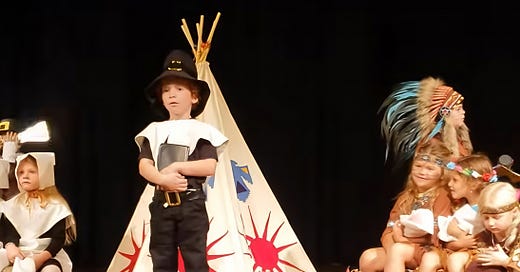


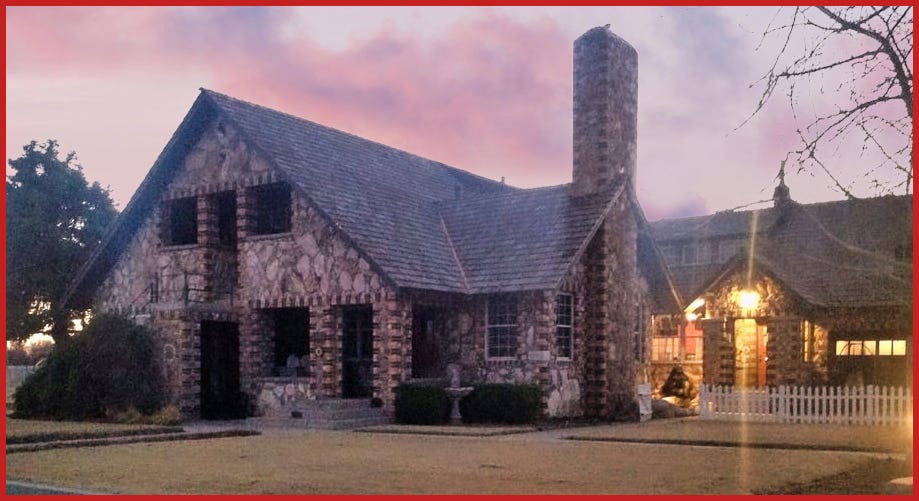






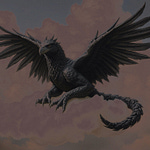
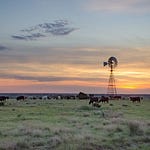

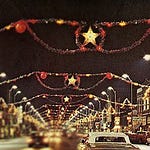
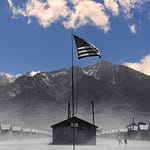
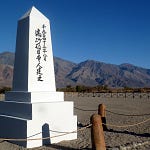
Share this post